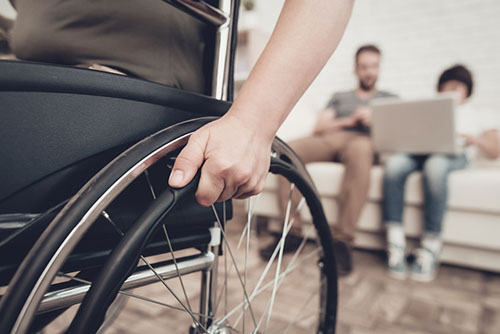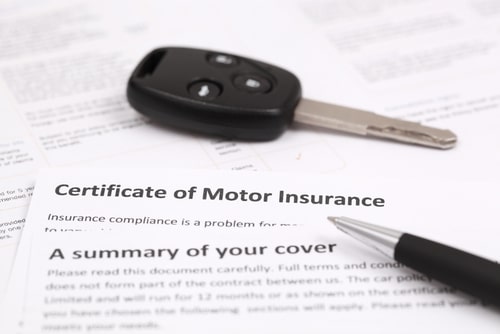Auto accidents can cause a variety of serious injuries, and head injuries are among the most devastating. Yet, head injuries can range in severity, with milder injuries presenting few symptoms in the immediate aftermath. Sometimes, what seems like a mild (or even undetected) head injury turns out to be far more serious than anyone suspected.
Head Injuries Caused By a Car Accident in Indianapolis
Victims of auto accidents face many hazards when the collision occurs and afterwards. When it comes to head injuries, many believe that they are less common these days because of all of the advancements in safety equipment in vehicles. After all, the person was probably wearing a seatbelt and may have had a quality airbag to minimize the impact. It is very true that these safety features can minimize your injuries, though they cannot protect you from everything.
An airbag might prevent your head from striking the steering wheel or the dashboard, if you have airbags. The seatbelt might even protect you from this, if you’re wearing it. Yet, you could still hit your head on a window, on the roof of the car, or have your head struck by some flying debris. In rollover accidents, the head is extremely likely to be injured by the impact of the vehicle rolling, the roof crumbling inward, and objects flying around the vehicle.
It is also extremely common for passengers in the back seat to not be buckled in, thinking that the back seat is somehow safer (it isn’t), and this is a frequent source of head injuries in Indiana auto accidents. Another concern that many aren’t aware of, and that leads to many head injuries being missed in the immediate aftermath of the collision, is that you can have a head injury without anything ever touching your head. If you have whiplash, a condition caused by the weight of the head snapping forward and back on the neck, then you may also have a traumatic brain injury, caused by your brain crashing into your skull. Nothing actually hits your head, so it may not even occur to you to think of this until it’s too late.
Sometimes, no matter how safe you are, the seatbelt fails, the airbag fails, or some other factor, in a sea of potential factors associated with auto accidents, occurs, and you end up with a head injury that might be fatal or have a lasting impact on your life.
Seeking Compensation After an Auto Accident Head Injury
If you are the victim of an auto accident that was caused by someone else’s negligence and which caused a head injury, you can recover compensation from the insurance policy of the at-fault driver. In some cases, you may also have uninsured or underinsured motorist coverage or other forms of coverage on your own policy that you can turn to. This is particularly helpful when the at-fault driver doesn’t have insurance or enough insurance to compensate you for your injuries. In cases where the auto accident was caused by a defective vehicle part, you may be able to seek compensation from the designer, manufacturer, or distributor of that part.
Even Mild Head Injuries Can Have Severe Consequences
Head injuries range in severity from mild to severe. Yet, this does not mean that mild injuries cannot result in very serious consequences for the victim. Rather, they are called mild traumatic brain injuries (TBIs) because they are on the milder end of the spectrum of head injuries that could happen. The most common example of a mild head injury is the common concussion.
A concussion can be caused by a variety of events, including what seems to be a minor bump to the head. Further, any motion that causes your brain to slam into your skull could cause a concussion. You may be able to recover from a concussion with little intervention, or you may end up with a somewhat more serious mild TBI. If you don’t seek medical attention to address your head injury, then you may even find that it becomes worse with time.
The symptoms that you are likely to experience with a mild traumatic brain injury include a headache, dizziness, sensitivity to light and/or sounds, and an inability to focus or concentrate your thoughts. You might also be extremely sleepy or unable to sleep at all. Some people notice significant cognitive deficits or unusual mood fluctuation, often with anxiety and irritability.
You are also far more likely to sustain another brain injury once you’ve experienced one. If you do anything to harm your head again, you could end up with more serious symptoms, and even a concussion could become a life-threatening situation, if you’re not careful.
Some Head Injuries Resulting from Car Accidents Are Life Threatening or Fatal
When a head injury is severe, especially if it goes untreated, it can quickly become a life-threatening condition; and for many people, it is fatal. When you narrowly escape death from a traumatic brain injury, you are likely to experience significant effects for the rest of your life. You may be hospitalized for a long time, as you recover, though you will probably never recover 100%. Many people end up in a coma from serious head injuries, and some never wake up.
Once you do recover, you may live the rest of your life with significant cognitive deficits, reoccurring headaches, and effects that require you to have constant care from medical professionals. Some people who survive severe traumatic brain injuries have entirely different personalities, with an increased tendency to get angry and upset, or a lack of empathy and understanding for others. You may face depression, difficulty connecting with your family members, and severe anxiety. You may also end up with long term sleep disturbance.
Call an Indiana Car Accident Attorney for a Free Consultation
If you or a loved one has sustained a traumatic brain injury after an Indiana auto accident, then you know how terrible the impact on your life can be. You also know how costly it is to treat the condition and the long-term effects. If your accident was caused by someone else’s negligence, then you are entitled to fair compensation for your damages. Call Rowe & Hamilton personal injury attorneys and car accident lawyers to learn more about how we can help you win that fight for compensation.






